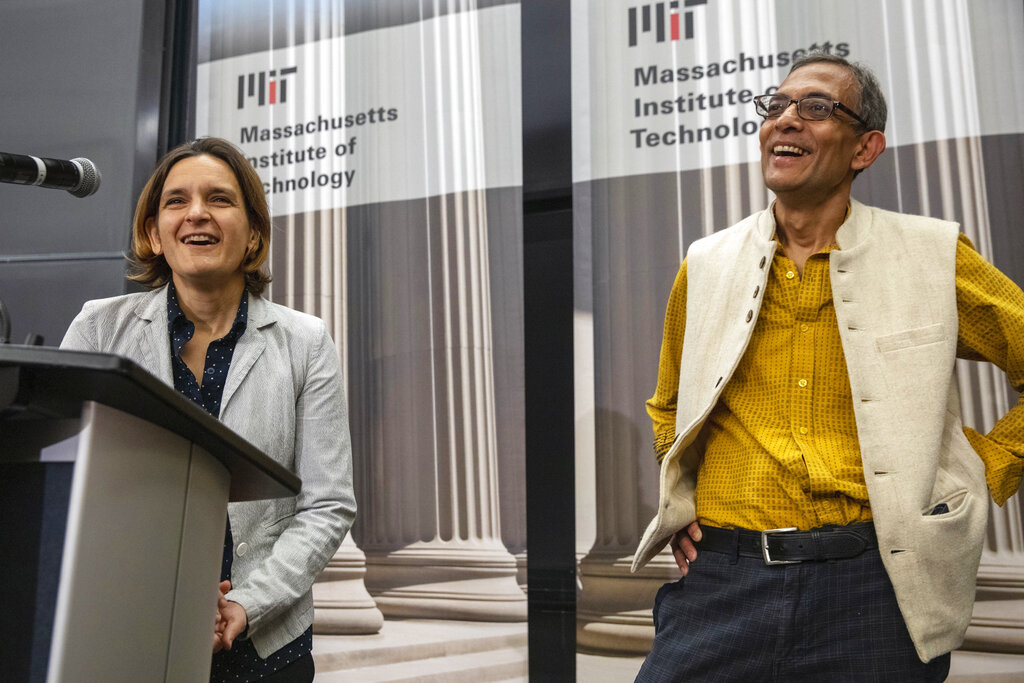When Nobelprize.org rang up Esther Duflo to congratulate her today, she told the interviewer that Abhijit Banerjee, her husband with whom she will share the prize, went back to bed after hearing they had won the Economics Nobel.
The website called up Banerjee anyway for the customary short interview with new laureates. It put Adam Smith on the job. Just a regular Adam. Not the Adam Smith who wrote An Inquiry into the Nature and Causes of the Wealth of Nations that Banerjee surely read in college.
Did Banerjee really go back to sleep, an amused Adam asked. 'Seems a very sensible and collected thing to do.'
The MIT professor, who had taken several calls by then, explained that 'it was very early in the morning. I am not an early morning person. I figured it would be a fault to the system if I don't continue my sleep.'
Did he manage to sleep?
'Yes. Well, not long. I kept getting calls after a while,' the professor said. Once news spread to India and Europe, 'I had no chance'.
Banerjee and Duflo co-authored the book Poor Economics that explained how they broke down large social problems into smaller pieces and then conducted what is known as randomised controlled trials to learn from the behaviour of people and understand where welfare policies may be failing them. The two also co-founded the Abdul Latif Jameel Poverty Action Lab with fellow economist Sendhil Mullainathan. The lab today is the hub of scientific research that tackles economic problems differently.
They are only the fifth couple in the history of the prize to win it jointly. When Banerjee was asked about it, he described his long collaboration with Duflo 'as a sort of family enterprise'. There's lots of dimensions... it becomes just more pleasant when you do it with your partner,' he said.
Before speaking to Banerjee, Nobelprize.org rang up Duflo. Yes, the same Adam called up.
Duflo is only the second woman to win the Economics Nobel and she was asked if she saw hope in this dismal statistic. She did hope the journey would now be only 'forward', but mentioned the truth. 'There are not enough women in the economics profession. Period,' she said.
'The general climate and the way we treat each other is not conducive for a woman in the profession,' Duflo, who also teaches in MIT, said. 'It is not about promotions, but the general environment. How people talk to each other, address each other.'
She mentioned that there were few non-white people in the profession and that needed to change.










